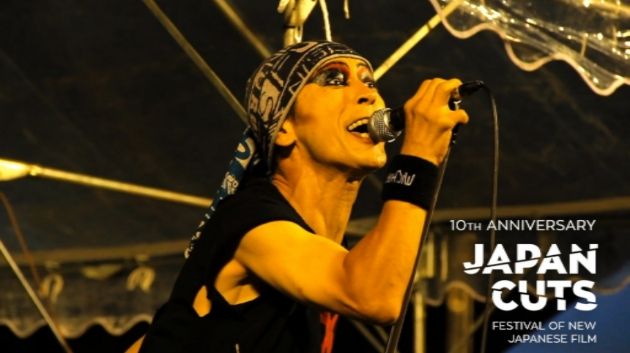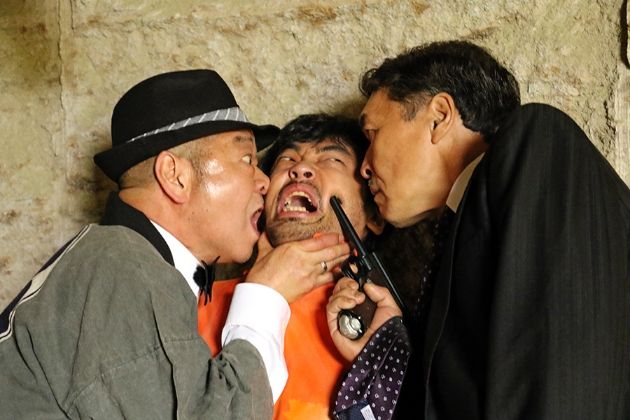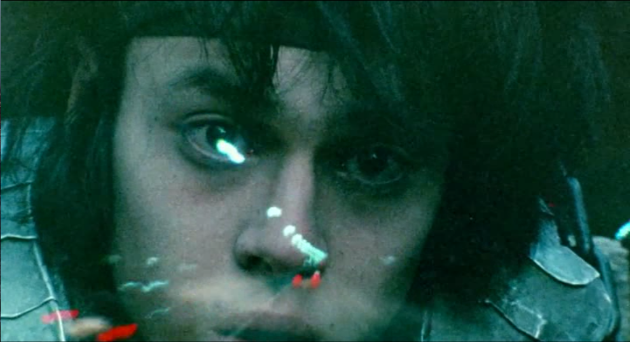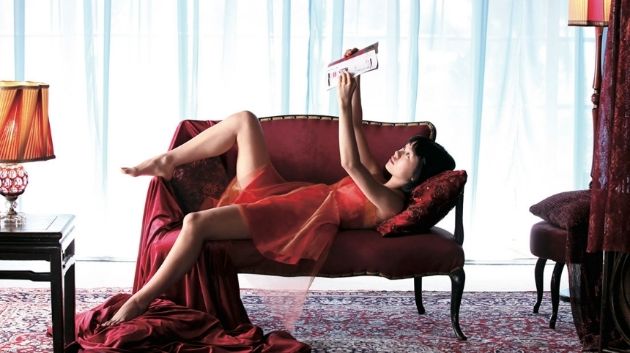Mother, I've Pretty Much Forgotten Your Face

Michiro Endo, once the frontman of Japanese punk group Stalin, turned 60 in 2011. He decided to travel all around Japan and make a movie. Turning 60 in Japan which is called called kanreki, has a special meaning. They consider the birthday as a the day of your rebirth. That you are a newborn into the world again. While touring and performing solo and with a group, Fukushima happens. Being a Fukushima native and hasn't visited his mother regularly, Endo journeys back to his hometown with a Geiger counter. With other musicians, Endo creates Project Fukushima! and launches the festival on August 15, 2011. 'Japan suffered 2 atomic bombs (in August 15), and one nuclear meltdown- the latter one was our own fault' Endo explains, 'that maybe the way we led our country after the war wasn't really right.' The festival was not to make Fukushima another place with forever negative connotation.
Mother is a documentary of not only a poignant personal journey but a hopeful reflection of Japan after such national disaster. Endo cites small radio stations popping up amidst disasters, connecting people, young and old, people getting together and influencing each other. He's still kicking ass on stage though, with his guttural, expletive filled screams against imperialists, parents and capitalism still resonate. The documentary also showcases the beauty of Japan in different seasons as Endo travels around.
Artist of Fasting

Masao Adachi, one of the key figures of the Japanese New Wave and definitely the most radical of the bunch, had to live most of his adult life in hiding because of his associations with the Japanese Red Army, a radical communist student group which took up armed struggle in Lebanon. Even after extradited to Japan in 2000 on some trumped up passport violation charges, the controversial writer/director still kept on making films. His turbulent past has been a subject of many adoring western filmmakers over the years (It Maybe that Beauty Has Strengthened Our Resolve, dir. Philippe Grandrieux and Anabasis of May and Fusako Shigenobu, Masao Adachi and 27 Years Without Images, dir. Eric Baudelair). At age 77, marooned forever in Japan (Japanese gov refuses to issue him a passport), he turns his attention to contemporary Japan, the country in the midst of prolonged economic stagnation and reeling from Fukushima, where the militarism he was so opposed to is once again rising.
With that background, Artist of Fasting is a full blown, not so subtle protest against Japan's rising militarism than a movie, equipped with the footage of the Fukushima disaster, dying third world children, war atrocities, etc. His 'pinku eiga' background also comes to the fore with schoolgirl nudity and rape which will surely raise some eyebrows of modern movie going audiences. Appropriating Kafka's The Hunger Artist, Adachi tells a parable of a misunderstood man: our silent hero (Hiroshi Yamamoto) decides to sit down in the middle of the shopping district and fast. He is a non-emotive man, an empty vessel that everyone can reflect their desires upon. He soon becomes a media sensation and thoroughly exploited by 'entertainment' industry which puts him in a cage adorned with the infamous 'rising-sun' flags for arousing nationalistic fervor. The film ultimately raises a big middle finger to powers that be- current Abe government, religion, media, military, yakuza and just about everyone.
Burst City

Without Gakuryu Ishii's seminal Burst City, there wouldn't have been no Tetsuo: The Iron Man, no Wild Zero and no Japanese cyberpunk culture for years to come. With his new film Bitter Honey playing at this year's Japan Cuts, this cult classic is making a North American theatrical debut and is a not to be missed! Never mind its almost incomprehensible narrative. But there are enough metal attire and rusty weapons to give you tetanus just by watching it. Starring who's who in punk rockers of the day (The Rockers, The Roosters, The Stalin, etc), this frenetic, handheld filmmaking is a dizzying mixture and excess of energy, attitude and absurdity, recalling anywhere from Mad Max to Rebel Without a Cause. It's mad fun!
Bitter Honey

A fantasy love story set in post-war Japan, Gakyuru Ishii's Bitter Honey is a beautiful accomplishment in filmmaking. Loosely based on Saisei Muro's book of the same name, the film tells an old dying writer Saisei (Ren Osugi) and his very unusual muse, Akako (Fumi Nikaido), a goldfish named after her bright red color. Living with his bedridden wife for 19 years, Sai finds an inspiration in the company of child-like Akako, a ¥300 goldfish he bought from a sage-like fishmonger (Masatoshi Nagase), who says the fish has an ass like "Brigitte Bardot". Their love is consummated by her being swallowed whole by Sai, then swimming back up to his mouth. There are many double entendres to be had in her torn tail and him fixing it with his saliva and what not. But Ishii keeps everything classy with immaculate period set design, slick camera movement and fully committed acting from both Osugi and Nikaido. This balance is the key success of Bitter Honey.
Nikaido, always in her red dress with long billowy tail, prancing around making funny faces, somehow makes this muse of a writer who-is-a-goldfish work. She is naive, coquettish, emotional, defiant and more. Her Akako turns out to be a writer's creation he can't control. She turns out to be a thoroughly three dimensional character.
It was his psychological thriller Angel Dust that introduced me to Gakuryu Ishii (then Sogo Ishii). His masterful formalism and haunting images made an indelible mark in my brain. Bitter Honey is filled with equally stunning imagery. Coming from an underground punk filmmaking, Ishii came a long way to direct such a mature and masterful film without ever losing a sense of wonder.
The Actor

Ken Yasuda plays the title role, a bit actor named Kameoka. He is one of those actors who you might recognize from countless movies but don't know the name. But Kameoka is a hard working fellow, whatever the role he takes - in yakuza or samurai films, he gives it all. His craft always gets recognized by his peers and filmmakers alike. When it comes to his work, he is a real professional. But he is a lonely, quiet, single man in life. After meeting an attractive single mother (alluring Kumiko Aso) at her small restaurant while on on the road for a film shoot, Kameoka has to reconsider what it means to be an actor in his own life.
It's good to see Satoko Yokohama's work again. Her goofy, good natured and highly original Bare Essence of Life was one of my favorites from Japan Cuts 2010. Here again, her unhurried, low-key film about an actor going about his life is completely unpretentious, agenda-less experience. There is nothing meta about The Actor despite its movie(s) within a movie premise, or actor playing an actor playing an actor. Veteran TV actor Yasuda with his sad, well-worn clown face gives a fine tuned, melancholic performance. It's his likability that makes the film. And we can't stop rooting for Kameoka's awkward attempt at romance. Even with the use of stage and goofy rare projections, nothing juts out in The Actor. Everything is well-rounded and tranquil. It's also very hard to categorize Yokohama's film one way or the other. It could be seen as many things or could be very simple. There are many humorous moments in this film. Albeit hushed, never laugh out loud funny but the gentle film puts a big smile on your face. I guess can be called a dramedy that puts a big smile on your face the whole time you are watching it. Yokohama is a rare, distinctive voice in a current Japanese cinema.